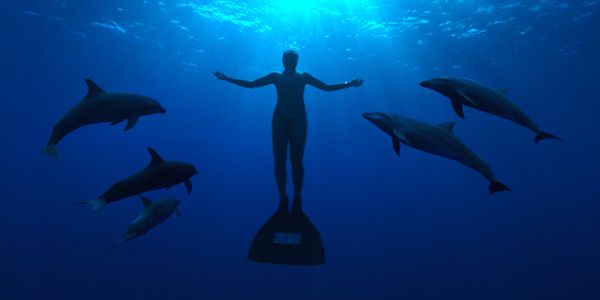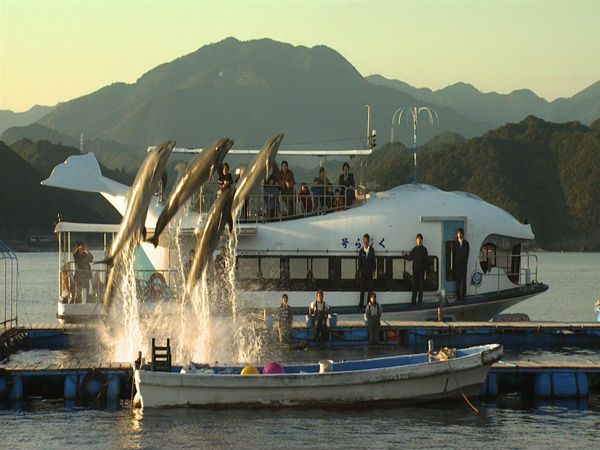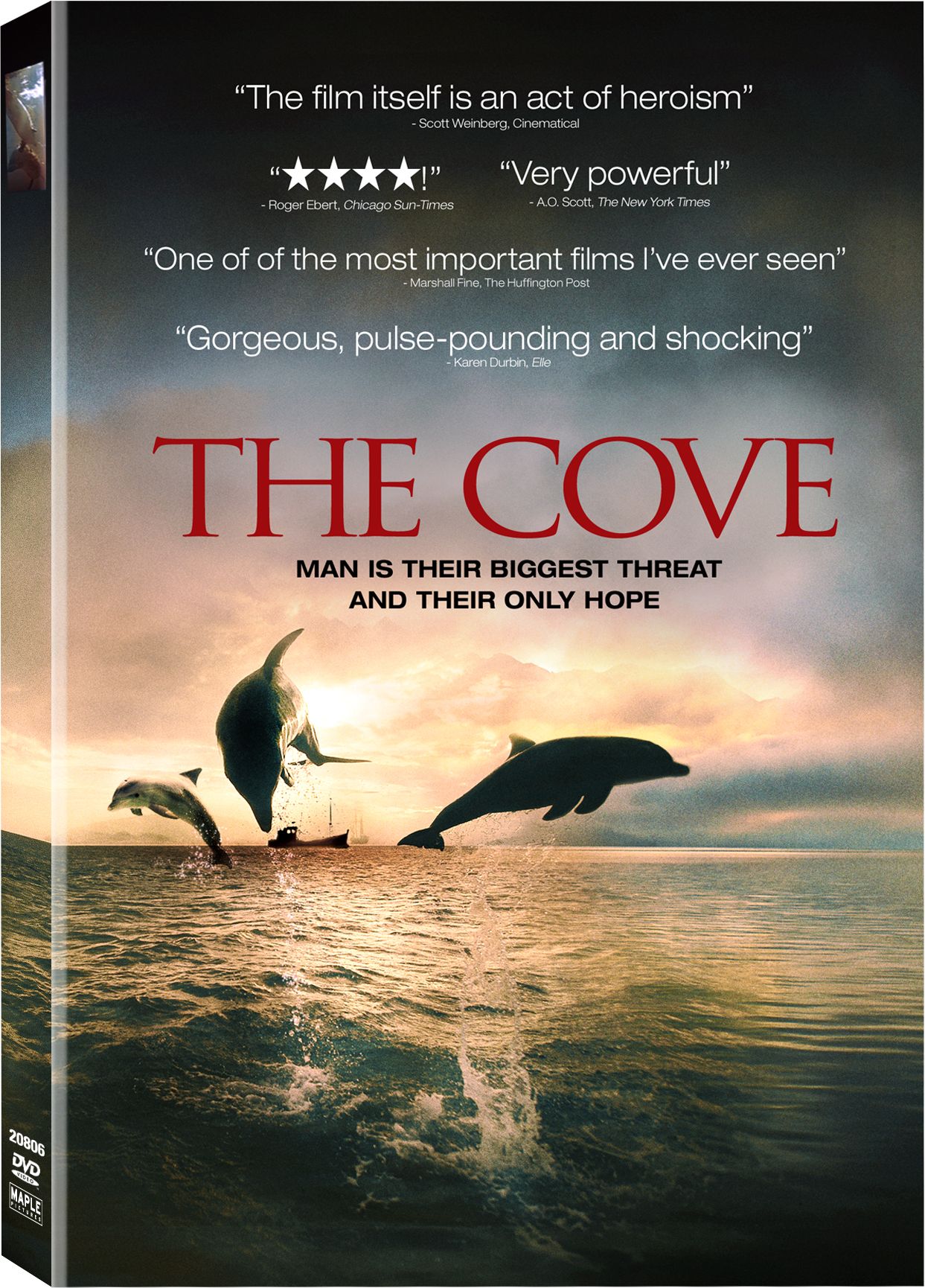A documentary about the inhumane treatment of dolphins near Taiji, Japan, The Cove combines an exciting and illegal mission with an activist's desire to expose an issue. The film juxtaposes a group of activists' scheme to document the goings-on of a heavily guarded cove with footage that gives a history of dolphin captivity and explains what makes these animals relevant and unique. The film is directed by Louie Psihoyos, a photographer who founded the Oceanic Preservation Society (OPS). Ric O'Barry, a now activist who was once known for capturing and training the dolphins used on Flipper, is also a key figure in the film. More after the jump.
Part of the film documents the attempt to infiltrate a single cove in Taiji. There, dolphins are caught for captivity. Those that aren't chosen for aquariums are instead taken by the fishermen to be sold as meat. Attempts to keep the public from accessing the cove are aggressive and, for the most part, successful. In order to make the film, though, a team had to be assembled to be able to get footage of the activities there. Throughout, the film shows how the team came together and how they were able to capture such telling images. This gets better as the film nears the end, where it shows the fascinating equipment used and the precautions that had to be taken to remain stealth.
The pacing of the film is somewhat uneven, making it feel a bit unfocused. In it, different short segments are cut between the interviews and the footage of the mission. Though the intercutting itself works, the order of the segments seems a bit arbitrary. One point introduced far too late is the amount of mercury found in dolphin. This makes the argument much more substantial, especially to people who might not see the concern with the treatment of dolphins. The placement of this information gives non-animal lovers a chance to dismiss the film without learning the implications this has for humans.
Ric O'Barry is a figure that is present throughout the film and seems to be the brainchild behind the project. O'Barry was once known for capturing the dolphins used on the Flipper TV show. Since then, he's changed to instead fighting against dolphin captivity. His story, though it would make a great narrative film, seems too much a quest to overcome a feeling of personal guilt. Though interesting, it is at odds with the rest of the film, which focuses more on the issue than on individual stories.
As someone who isn't ever too disturbed by images seen onscreen, I was able to sit through the film without ever having to avert my eyes. For those less stoic than I, though, the film could be difficult to watch. Since this is actual footage, there isn't the usual comfort that the images seen are false. I would suggest having someone fast forward through the really ugly parts, since there's only really a small segment with graphic images towards the end
When it comes to documentaries that seek to convey a political message, I tend to be wary. They are often one-sided and thus come off as overly manipulative. The Cove sometimes seems to fall into this trapping. The few conversations with people not involved in the mission seem mere attempts to find a weak spot and expose it. However, throughout the film I found myself more willing to trust that it wasn't trying so much to change the views of the spectators. Rather, it aimed to reveal something to the public that otherwise would be lost to those not knowledgeable about the subject.
The Cove was able to hold my attention throughout, with the help of some really great images and appropriate music. However, it might have attempted to throw too much information at the viewer. The film also seemed a little too caught up in wowing the audience with its own accomplishments, since the same people who staged the mission made it. Despite some problems, The Cove is still a noteworthy film that is able to make an argument in an interesting way.
Special Features: "Special OPS Camera" is about the cameras used by the Oceanic Preservation Society during the mission. This should be interesting to those who would like to learn more about the technical aspects of the secret filming. "Freediving" has stunning underwater images set to music. It's probably a little long, but great nonetheless. The "Deleted Scenes" segment shows more about the OPS and Surfers for Cetaceans "Paddle Out," which was briefly shown in the film. It also includes a short and mildly funny scene of O'Barry choosing a wig to go undercover. It ends with footage of the Taiji Whale Festival, which is rather boring since it includes no interviews. "The Cove: Mercury Rising" is about twenty minutes long and elaborates on the mercury poisoning problem. It shows some clips from the film, making it somewhat redundant. It does, though, offer information about mercury that the film could have used more of.
Film: A minus
Special Features: B plus




